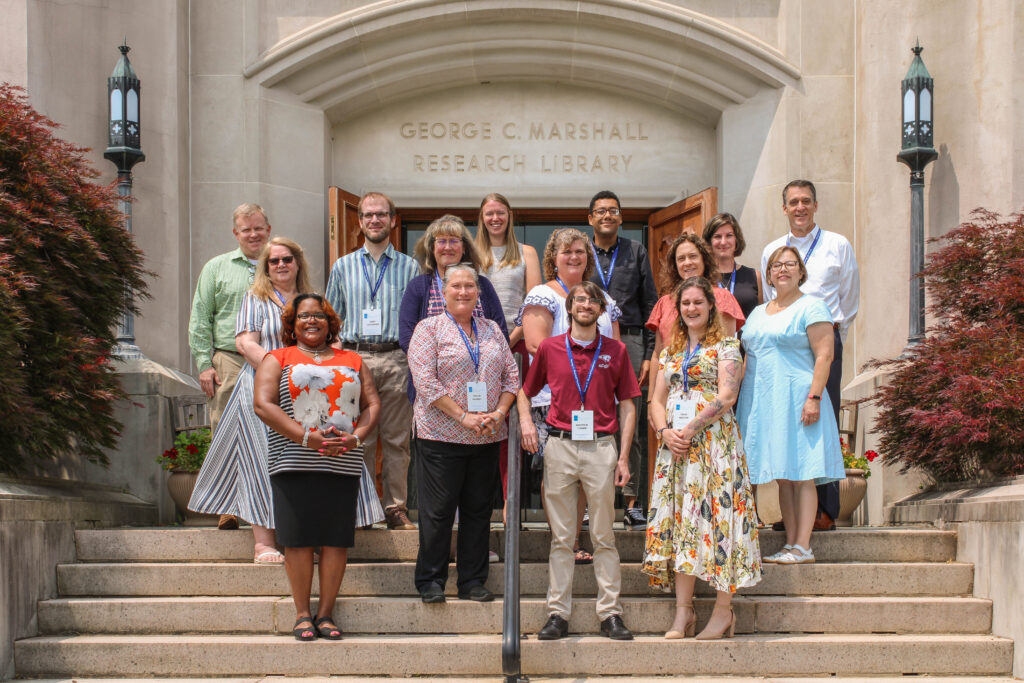The George C. Marshall Foundation hosted a week-long professional development seminar for secondary school teachers in Lexington, Virginia in June. The program, spearheaded by Dr. Bradley Coleman and Amanda Conway, brought eleven teachers from across the commonwealth to the Marshall Foundation to discover resources, network with historians, educators, and economists, and develop lesson plans.
“George Marshall is an essential part of twentieth century US and world history,” said Dr. Coleman. “He appears in the Virginia Standards of Learning, but most educators are not equipped to teach Marshall. Yes, Marshall is a vehicle for learning about the past. He is also a model for ethical leadership and conduct. The lessons of the Marshall story are relevant today.”
The seminar included presentations from experts like economist Dr. Benn Steil, senior fellow and director of international economics at the Council on Foreign Relations, and Dr. Seth Rotramel, historian at the Office of the Historian for the U.S. Department of State. Participants also took field trips to archives at the Virginia Military Institute and Washington & Lee University, as well as to George C. Marshall’s home in Leesburg.
“This was by far the best week of professional development I have ever had,” said participant Matthew Turner who teaches at Warren County High School. Devlin Murphy, a teacher at Manchester High School in Chesterfield County wrote “I have loved the entire program. To be given the gift of learning about an incredible American patriot and to find a way to share that knowledge with my students—priceless. I have never felt as valued as an educator as I have this week.”
“I was incredibly impressed by the dedication and creativity of the teachers we hosted this summer,” said Dr. Paul Levengood, Marshall Foundation president. “They will teach in excess of 1,200 students this school year, and I know that they will use what they learned here to help these young people understand that Marshall’s accomplishments are central to understanding the twentieth century. This group of educators renews my faith in the possibility to make real change through education.”
Looking to next year, Dr. Coleman added “The lessons learned in 2023 will shape future offerings—we are dedicated to continuous improvement. The potential of this program is breathtaking. Our teachers will have over 1,200 students in the classroom this year. We have the opportunity to transform the way Marshall is taught in middle and high school classrooms.”

